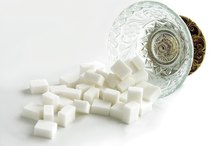What does fact checked mean?
At Healthfully, we strive to deliver objective content that is accurate and up-to-date. Our team periodically reviews articles in order to ensure content quality. The sources cited below consist of evidence from peer-reviewed journals, prominent medical organizations, academic associations, and government data.
- PubMed: Alterations in Hepatic Glucose and Energy Metabolism as a Result of Calorie and Carbohydrate Restriction
- PubMed: Alterations in Hepatic Glucose and Energy Metabolism as a Result of Calorie and Carbohydrate Restriction
The information contained on this site is for informational purposes only, and should not be used as a substitute for the advice of a professional health care provider. Please check with the appropriate physician regarding health questions and concerns. Although we strive to deliver accurate and up-to-date information, no guarantee to that effect is made.
Atkins Diet and Liver Problems
While it is undetermined whether or not the Atkins Diet can actually cause liver problems, replacing carbohydrates with protein, as the Atkins Diet recommends, is not recommended for people with existing liver ailments. Your liver is primarily responsible for metabolizing energy from carbohydrates, fats and protein, and the Atkins Diet creates a dietary imbalance of these nutrients, directly affecting how your liver works. Conversely, one recent study indicates that such a low-carb diet might actually be advantageous for people suffering from nonalcoholic fatty liver disease, or NAFLD, however.
If you are experiencing serious medical symptoms, seek emergency treatment immediately.
Impact of Ketosis
The Atkins Diet sends your body into a state of ketosis, in which it must resort to burning fat for energy rather than the quick and easy energy of carbs. This results in weight loss, at least short term. But it is primarily your liver that metabolizes fat for energy. Therefore, if you enter ketosis per the guidelines of the Atkins Diet, it makes your liver work harder, according to the website Hep C Primer 1. If your liver is not working at peak efficiency to begin with, ketosis can cause even more damage and be potentially life threatening.
- The Atkins Diet sends your body into a state of ketosis, in which it must resort to burning fat for energy rather than the quick and easy energy of carbs.
Impact of Increased Protein
Red Meat & Its Effect on the Liver
Learn More
Protein helps to repair damaged tissue. According to the American Liver Foundation, it can regenerate liver cells. But like the processing of fat involved in ketosis, protein is harder for your liver to metabolize as well. For cirrhosis, the American Liver Foundation recommends a balanced diet that includes protein for cell health and suggests that you speak to your physician about how much you should be ingesting so as not to tax your liver by consuming too much.
- Protein helps to repair damaged tissue.
- But like the processing of fat involved in ketosis, protein is harder for your liver to metabolize as well.
Impact of Reduced Carbohydrates
If you have liver disease, you should eat more carbohydrates, not less, because they are easier for your liver to process, according to Hep C Primer 1. The website quotes Dr. Melissa Palmer as indicating that ideally, you should eat 400 g of carbohydrates a day with liver dysfunction. Comparatively, dieters begin the first phase of the Atkins Diet by consuming only 20 g of carbs a day. The American Liver Foundation also recommends eating plenty of fiber if you suffer from fatty liver disease, and the Atkins Diet limits sources of fiber as well, especially in its initial induction phase.
- If you have liver disease, you should eat more carbohydrates, not less, because they are easier for your liver to process, according to Hep C Primer 1.
- The website quotes Dr. Melissa Palmer as indicating that ideally, you should eat 400 g of carbohydrates a day with liver dysfunction.
Effect on Liver Fat
Diet for Liver Hemangioma
Learn More
Browning believes this might prove beneficial for those who suffer from nonalcoholic fatty liver disease, or NAFLD, a condition that results from an excess of fat in the liver.
Warning
Hep C Primer indicates that if you suffer from liver disease, the last thing you want to do is attempt any diet without consulting with your physician first 1. Because your protein consumption is critical to liver function, your dietary intake should be monitored by your doctor.
Related Articles
References
- Hep C Primer: Influencing Liver Disease With Diet
- ScienceDaily: Low-Carbohydrate Diet Burns More Excess Liver Fat Than Low-Calorie Diet, Clinical Study Finds
- PubMed: Alterations in Hepatic Glucose and Energy Metabolism as a Result of Calorie and Carbohydrate Restriction
- National Institute of Diabetes and Digestive and Kidney Disease. What Is NAFLD and NASH?
- National Institute of Diabetes and Digestive and Kidney Disease. How Can My Diet Help Prevent or Treat NAFLD or NASH?
- US National Library of Medicine. Medline Plus. Fatty Liver Disease.
Writer Bio
Beverly Bird has been writing professionally since 1983. She is the author of several novels including the bestselling "Comes the Rain" and "With Every Breath." Bird also has extensive experience as a paralegal, primarily in the areas of divorce and family law, bankruptcy and estate law. She covers many legal topics in her articles.









